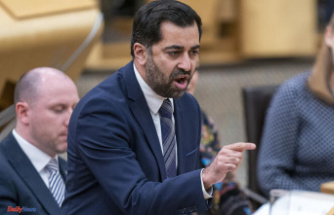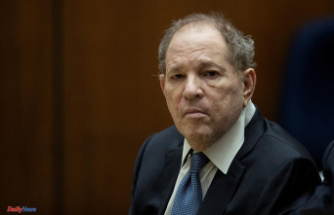The state stud gets its money from stallion demonstrations, the German Riding School and leasing - but above all from so-called insemination fees. However, the fact that breeders have to spend more and more on the care of their animals as a result of the war could have consequences.
Düsseldorf/Warendorf (dpa/lnw) - The work of the stallions at the North Rhine-Westphalian State Stud could be less in demand in the coming year because horse breeders will also have to tighten their belts. "Due to the current economic development and the significantly increased costs, also on the part of breeders, restrained demand and thus lower income than in the previous year are expected," says the draft for the 2023 budget of the Ministry of Agriculture. Accordingly, compared to 2022, a decrease in income - a large part of which is insemination fees - is calculated by 410,000 euros to around 1.54 million euros.
The breeding manager at the Westfälisches Pferdestammbuch, the association of local horse breeders, also thinks a more muted attitude is possible. "There is certainly a restrained euphoria," said Thomas Münch of the German Press Agency. As a result of the war, there is no more grain from Ukraine. Shavings as bedding are hard to come by. On the other hand, energy costs are increasing. Münch, who also runs the Westphalian Horse Center, made it clear that the expenses for maintaining a horse have already doubled in some cases. Especially since the stud fee of several hundred or sometimes 1000 euros, depending on the stallion, does not make a lot in relation to the total costs.
On the other hand, the foals that are born next year and then cause costs have long been produced, said Münch. "For this year's breeding season, there is no sign of any crisis-related restraint on the part of the breeders," explained a ministry spokesman. "A longer-term trend over several years is not foreseeable at this point in time." Next year, breeders will have to make an estimate of how the foal market - i.e. the sales opportunities for foals - will develop in 2024.
"Actually, one should think anti-cyclically," said Münch. Otherwise there would be a lack of riding horses in a few years. "I need supplies." Among other things, the horse stud book is responsible for breeding programs and sales events such as auctions - these are increasing due to the corona and with great success online. Last year he sold to 50 countries, reported Münch. "From Paraguay to India."
In general, the market experienced a boom during the pandemic, said Münch. From his point of view, this was primarily due to the fact that people spent less money on vacations and restaurant visits and thus had more in their wallets at the end of the month. In addition, equestrian sports were largely unrestricted. Nevertheless, the horse will remain a luxury hobby. It remains to be seen to what extent the economic crisis will leave its mark.
The current developments are also forcing the State Stud to make savings. For reasons of animal welfare, this is not possible with feed, the ministry made clear. However, the energy consumption in the listed buildings and the lighting have been adjusted. There are also plans to use renewable energies in the medium term. The crisis has no consequences for the capacities of the stud farm.
According to the stud, there are around 90 "active" stallions in the stables in Warendorf in Münsterland. Since it was founded in 1826, it has been responsible for providing horse breeders "with high-quality and genetically interesting stallions for a reasonable stud fee". The German Riding School is affiliated.
So that the budget of the stud does not slip into the red, the state wants to compensate for falling income and increase its expenditure according to the budget draft by almost 1.5 million to 7.6 million euros. The overall costs have increased due to the significantly increasing prices, especially with regard to the management of the land and buildings or also with a view to work and protective clothing, feed, straw, electricity and fuel, it is said.
In addition, the repair of the fire alarm is essential. "The fire alarm system of the NRW state stud is no longer up to date," explained the spokesman. "Hay, straw and the wood of the historic building represent fire risks that must be countered adequately." A safety check is currently in progress, which is why no specific costs can be given.












